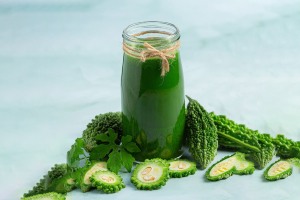

Zinc is an essential mineral that is important for the proper functioning of the human body. It has been found to enhance immune response, promote wound healing, and even DNA synthesis. Surprisingly, zinc deficiency is more prevalent than most people would expect. This article will help you know about the symptoms of zinc deficiency so that you can seek treatment early and lead a healthy life.
Symptoms of Zinc Deficiency
Zinc deficiency is a condition that arises when an individual’s body is unable to obtain adequate amounts of zinc. The following symptoms of zinc deficiency may indicate that your body lacks the right amount of this essential mineral:
Frequent Infections
It is a vital nutrient that is involved in immune system functioning. Lack of zinc in the body makes it difficult for the body to fight off infections, especially respiratory ones. Frequent colds may indicate the symptoms of zinc deficiency.
Delayed Wound Healing
Zinc helps in the regeneration of cells and the healing of wounds. Its deficiency may cause the body to take a long time to heal from cuts or any other injury.
Hair Loss
Since zinc is very essential for hair growth, its deficiency may result in thinning or hair loss.
Loss of Appetite
One of the symptoms of zinc deficiency can result in poor appetite and, consequently, loss of weight and other complications.
Skin Problems
Low level of zinc can also lead to dryness of skin, itching, dermatitis, and rashes.
White Spots on Nails
Some of the signs of zinc deficiency and nails are white spots or brittle nails.
Impaired Growth in Children
As per ScienceDirect, zinc deficiency in children is linked to stunted growth and poor development.
How Zinc Benefits Men and Women in Multiple Ways?
Zinc is essential for the proper functioning of the body and is needed for immunity, wound healing, boosting the metabolism, thyroid function and much more. Let’s learn a few of the major zinc benefits:
Boosting the Immune System
It assists the immune system by catalysing enzymes that are useful in combating diseases. A healthy immune system makes it easier for your body to fight infections and diseases that may want to invade your body.
Promoting Wound Healing
Some of the zinc benefits include enhanced wound healing because zinc plays an important role in collagen synthesis and tissue regeneration. It is also important in the body’s ability to heal from injuries, and when the body has adequate zinc, the healing process is faster.
Supporting Reproductive Health
Zinc is especially important for both male and female fertility.
- Zinc benefits for men: As per NCBI, zinc plays a role in regulating testosterone levels, which is known to affect sexual health and fertility. It also leads to the production of sperm and is vital in the male reproductive system.
- Zinc benefits for women: In women, zinc plays an important role in ovulation and fertility. It also assists in the management of hormones which affect menstruation and even pregnancy.
- Improving Skin Health: It has anti-inflammatory effects, and therefore, can be used to treat acne and other skin-related conditions. It can also stimulate the production of collagen and increase the elasticity of the skin, thus eradicating the signs of ageing.
Zinc Deficiency Test
If you think that you may be suffering from inadequacy of zinc, then a zinc deficiency test will help you determine this. The test provides the amount of zinc in your blood and shows whether one is getting an adequate amount of this mineral or not. Consulting a healthcare provider is crucial for proper diagnosis and management.
Managing Zinc Deficiency
If you’ve been diagnosed with low level of zinc, there are several ways to manage it:
-
Dietary Adjustments
The best way to address the zinc deficiency is to make some changes to your diet. Zinc-rich foods include:
- Meat: It is found in red meat, poultry, and pork. These can help to replenish the body’s zinc stores if eaten on a regular basis.
- Shellfish: Sea foods such as oysters, crabs, and lobsters are rich in zinc.
- Legumes: Chickpeas, lentils, and beans are good plant-based sources that are good for vegetarians and vegans.
- Dairy: It can be obtained from milk, cheese, and yoghurt, and these foods can be easily included in the diet.
- Nuts and Seeds: Zinc-rich foods include pumpkin seeds, almonds, and cashews, which are good snacks.
-
Zinc Supplements
If the changes in diet are not enough, your doctor may prescribe supplements to you. Zinc supplements are available in different forms, including zinc sulphate, zinc gluconate, or zinc acetate, and can be used to replenish normal zinc levels and gain zinc benefits.
Conclusion
Zinc is an essential trace element that has a wide range of functions in the human body. Some of the signs and symptoms of zinc deficiency include recurrent infections, slow healing of the wounds, loss of hair, and skin rashes. If you notice these signs, you should change your diet, take supplements, and consult a doctor to address your zinc level and lead a healthier life. If you think that you may have a low level, do not hesitate to take a zinc deficiency test and seek medical advice.




